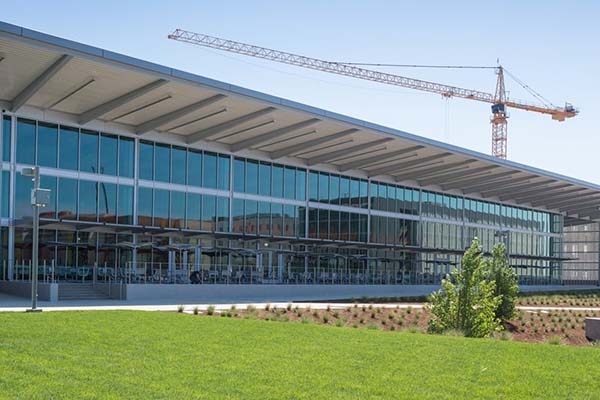Commissioning, commonly abbreviated as Cx, is a process that ensures a building meets an Owner’s or project stakeholder’s functional needs and is as sustainable and efficient as required. It is a quality assurance process for achieving, verifying, and documenting that the performance of facilities, systems, and assemblies meet the project owners’ documented objectives and criteria.
The systems to be commissioned can include only a particular major piece of equipment or all systems within a project, including HVAC, plumbing, lighting, security, renewable energy stems, and even the building enclosure.
This writeup is focused on new construction commissioning. Additional forms of commissioning include Monitoring-based Commissioning, Ongoing Commissioning (AKA Continuous Commissioning), Recommissioning, and Existing Building Commissioning (AKA Retro-commissioning).
When is New Construction Commissioning Needed?
New construction commissioning is often required by city or local codes, generally triggered by project size and/or systems included. New construction commissioning is also required for any project pursuing Leadership in Energy and Environmental Design (LEED) certification from the US Green Building Council (USGBC).
Requirements aside, including commissioning can be a significant asset to any construction project. The Cx process is a way to protect a building owner’s investment by making sure the completed project meets their needs and performance goals. The cost of commissioning is usually more than made up by the energy savings and increased occupant productivity that are an outcome of the process.
What is the Process of New Construction Commissioning?
The Cx process usually starts when the building owner contracts with a third-party commissioning provider (CxP). The person in charge of the commissioning process can also be known as the commissioning agent or authority, abbreviated as CxA. This individual is responsible for all aspects of the Cx process and helps to ensure the Owner’s requirements are realized.
Ideally, the CxA is brought in early on in the project timeline, such as at the pre-design or early design phase. The CxA will then be involved throughout the design phases, through the construction and acceptance phases, and even into the post-occupancy phase. The CxA works closely with the Owner, building maintenance staff, designers, general contractors, and subcontractors throughout the process.
The design phase provides the best opportunity for effecting significant savings as it is always easier to amend designs than to remedy a problem that’s already been constructed (let alone after the building is occupied). During the design stage, the CxA is ensuring that the design is consistent with the Owner’s documented requirements and will translate effectively to physical construction and ongoing operations. For example, a CxA may identify that additional maintenance access is needed for the building’s piping and ducts to ensure future repairs are implemented smoothly.
Once construction begins, the CxA should become a familiar face around the site, observing the contractors to ensure proper installation and startup of equipment and systems. After verifying that systems are installed correctly, the CxA will use functional performance tests to identify problems that could occur during occupancy. The CxA does not typically perform the testing directly but instead develops the test scripts and witnesses the testing process performed by the manufacturers and trade contractors.
Functional performance tests can identify issues such as improper heating in some of the rooms or fans that have been wired such that they rotate backward. While commissioning services are typically around 1% of construction costs, the potential savings from fixing these mistakes can be far greater.
In the acceptance phase, new construction commissioning ensures that onsite staff have the necessary training and resources to operate the building up to its expected performance.
What are the Benefits of New Construction Commissioning?
Simply put, new construction commissioning ensures that the final, occupied building meets the Owner’s and stakeholder’s needs and expectations. The process helps to ensure a comprehensive and quality design and lowers operating and maintenance costs. Functional testing of the building’s systems results in equipment that operates at maximum efficiency. New buildings that complete the commissioning process are much more likely to achieve sustainability goals and operate more efficiently, which is why the LEED certification requires it.
If you have additional questions or are considering commissioning for a building project, please get in touch with one of Veregy’s experts.


